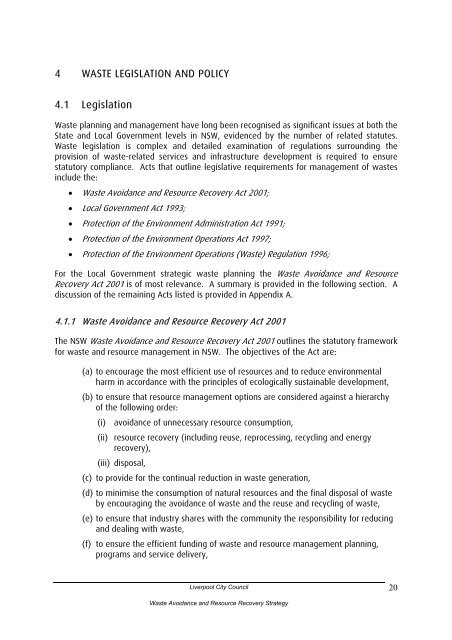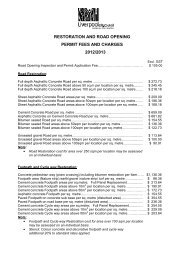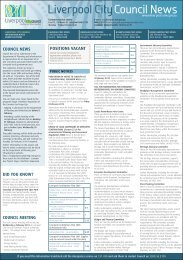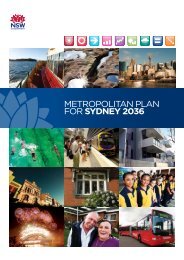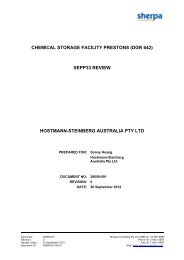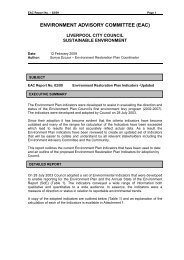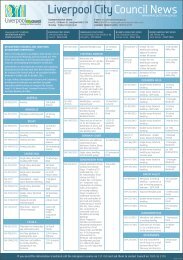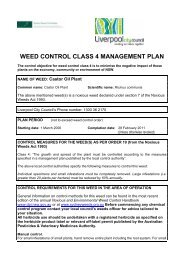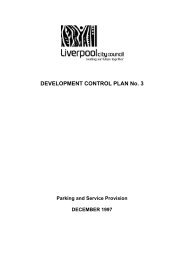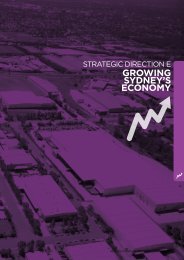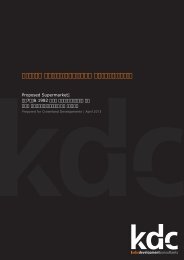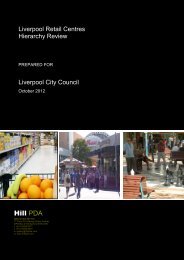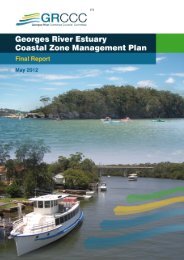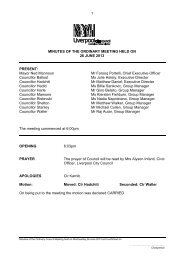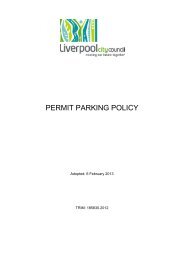to view the WARR Strategy. - Liverpool City Council - NSW ...
to view the WARR Strategy. - Liverpool City Council - NSW ...
to view the WARR Strategy. - Liverpool City Council - NSW ...
You also want an ePaper? Increase the reach of your titles
YUMPU automatically turns print PDFs into web optimized ePapers that Google loves.
4 WASTE LEGISLATION AND POLICY4.1 LegislationWaste planning and management have long been recognised as significant issues at both <strong>the</strong>State and Local Government levels in <strong>NSW</strong>, evidenced by <strong>the</strong> number of related statutes.Waste legislation is complex and detailed examination of regulations surrounding <strong>the</strong>provision of waste-related services and infrastructure development is required <strong>to</strong> ensurestatu<strong>to</strong>ry compliance. Acts that outline legislative requirements for management of wastesinclude <strong>the</strong>:• Waste Avoidance and Resource Recovery Act 2001;• Local Government Act 1993;• Protection of <strong>the</strong> Environment Administration Act 1991;• Protection of <strong>the</strong> Environment Operations Act 1997;• Protection of <strong>the</strong> Environment Operations (Waste) Regulation 1996;For <strong>the</strong> Local Government strategic waste planning <strong>the</strong> Waste Avoidance and ResourceRecovery Act 2001 is of most relevance. A summary is provided in <strong>the</strong> following section. Adiscussion of <strong>the</strong> remaining Acts listed is provided in Appendix A.4.1.1 Waste Avoidance and Resource Recovery Act 2001The <strong>NSW</strong> Waste Avoidance and Resource Recovery Act 2001 outlines <strong>the</strong> statu<strong>to</strong>ry frameworkfor waste and resource management in <strong>NSW</strong>. The objectives of <strong>the</strong> Act are:(a) <strong>to</strong> encourage <strong>the</strong> most efficient use of resources and <strong>to</strong> reduce environmentalharm in accordance with <strong>the</strong> principles of ecologically sustainable development,(b) <strong>to</strong> ensure that resource management options are considered against a hierarchyof <strong>the</strong> following order:(i) avoidance of unnecessary resource consumption,(ii) resource recovery (including reuse, reprocessing, recycling and energyrecovery),(iii) disposal,(c) <strong>to</strong> provide for <strong>the</strong> continual reduction in waste generation,(d) <strong>to</strong> minimise <strong>the</strong> consumption of natural resources and <strong>the</strong> final disposal of wasteby encouraging <strong>the</strong> avoidance of waste and <strong>the</strong> reuse and recycling of waste,(e) <strong>to</strong> ensure that industry shares with <strong>the</strong> community <strong>the</strong> responsibility for reducingand dealing with waste,(f) <strong>to</strong> ensure <strong>the</strong> efficient funding of waste and resource management planning,programs and service delivery,<strong>Liverpool</strong> <strong>City</strong> <strong>Council</strong>20Waste Avoidance and Resource Recovery <strong>Strategy</strong>


